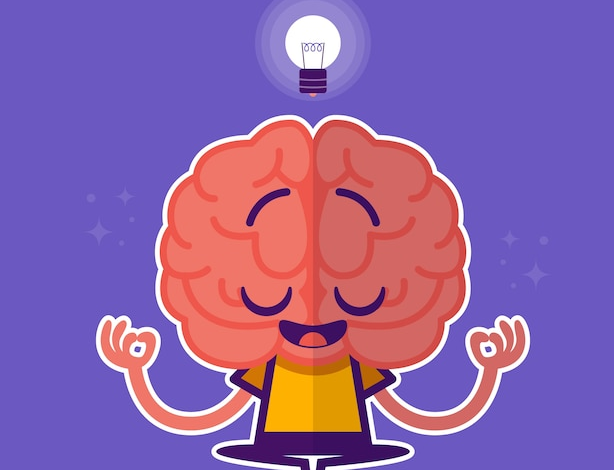
6 Ways To Remember With Easier Approaches
“A memory is made up of pieces of information taken in and processed by the brain in a way that is unique to each individual.” ― David Thomas, Improving Your Memory
Memory involves recalling and retrieving general information that affects daily life of an individual. However, remembering essential things like names, dates, and acts can be challenging. So, is your memory causing a severe problem? With this post, you can learn strategies to sharpen and improve your thinking ability.
Memory lapses can be quite embarrassing, whether you have to prepare for an exam or your professional career. So, if you want to keep your brain mentally sharp, considering certain scientifically proven memory improving techniques can be helpful. Accordingly, if you are also a person who tends to forget almost everything within a few days, don’t worry, this space is just for you! Here are the six powerful mnemonic strategies you can undertake and visualise a change within a maximum period of time. So, are you ready to boost your memory power? Thus, let’s have a look at some memory-boosting powerful techniques.

6 Powerful Mnemonic Techniques to Boost Your Memory – 6 Ways To Remember With Easier Approaches
- The general-to-specific technique
Memorising whatever you see, hear, or read can cause more hindrance. Instead, simply focus on understanding the context from a broad approach. Thus, in this contrast learning from general to specific is highly essential.
For example, if you are learning something related to academics, make the topic more meaningful. How? Let me explain to you with a brief example.
For example, let’s take something related to Indian History, the Mughal period in History, try to see the complete picture. Learn the significance of this period in History and know whether they are associated with ancient India, medieval India, or modern India. Moreover, this technique is not only applicable for History. You can apply it to all aspects of academic learning to get positive outcome.
- The filter-&-figure-out technique
Our brain is never empty – we feed it many new things every second. Whatever we read, write, see, hear or touch, our brain automatically captures it. Are all these important? Is it necessary for each to occupy space of our brain?
Therefore, there is the art of selecting what is essential to remember. For example, is it is vital to remember an old phone number that you have already changed? No, not at all. Just delete them from your memory. Thus, filtering all non-essential things will free our brain from unwanted pressure.
- The store-with-interest technique
Have you ever thought about how you seem to remember specific information for a more extended period? Because it is a human tendency to absorb areas of your interest naturally.
Let’s, take an example from academic subjects. Few subjects excite you, and you find it interesting in learning them. Moreover, you remember every detail associated with that area. It is because you are interested in it or you like how your teacher presents that subject. So, the essential technique to generate interest in any subject is to find the purpose behind the study and developing connection within them.
- The create-a-phrase technique
This technique can be pretty exciting. Have you ever thought, how to remember nine planets with an easy approach? Placing each with a phrase can be interesting. This technique is also known as acrostics, crosswords, word mnemonics or expression mnemonics.
Let me show you with example how can you remember planets.
Mercury, Venus, Earth, Mars, Jupiter, Saturn, Uranus, Neptune, and Pluto – “My very excellent mother just served us nine pizzas.”
Additionally, you can remember Biology taxonomy. For example, here is a trick to remember Kingdom, Phylum, Class, Order, Family, Genus, and Species – “King’s Palace Can Order For Great Spices!”
Therefore, you can adopt phrase techniques for each subject and learn to create fun-filled environment.
- Rhyming mnemonics technique
Another powerful mnemonic technique that you can adopt is using rhyme to remember information. Let’s learn with the famous example of a rhyming mnemonic is the phrase “In fourteen hundred and ninety-two, Columbus sailed the ocean blue.” Here, the information you want to memorise is the date Columbus began his travels, and its rhyming with “ocean blue” will help you recall the period 1492.
- Acronym mnemonics technique
The human brain tends to prefer short, and with this, it mainly stores more concise data than the longer ones. So, the acronyms technique is found to be robust to remember information in the long run.

Thus, let’s view some examples for 6 Ways To Remember With Easier Approaches
- To remember great Lakes in America like Huron, Ontario, Michigan, Erie, and Superior, easily use the acronym “HOMES”
- Here is the acronym “P-MAT” for biology students to remember cell division like Prophase, Metaphase, Anaphase, and Telophase.
The Bottom Line
For the human brain, it is not easy to remember everything happening around you in 365 days. Forgetting is the natural tendency of every human. But what if we forget something important?
So, the strategies that I have listed in this article will help you store and retrieve valuable information effectively. However, make sure that you don’t put unnecessary pressure and develop traumas on your brain. Therefore, your brain is a delicate part, giving it mental peace and living a healthy life to develop amazing memory power. GOOD LUCK!
Few samples are here NRSG258 assessment answers
Author Bio
Nancy Richard has completed her M.sc degree in “Human Psychology” from a reputed university. Besides being a well-known psychologist, Richard is also associated with the academic website MyAssignmenthelp.com. Get the sample of the 300677 assessment answers




